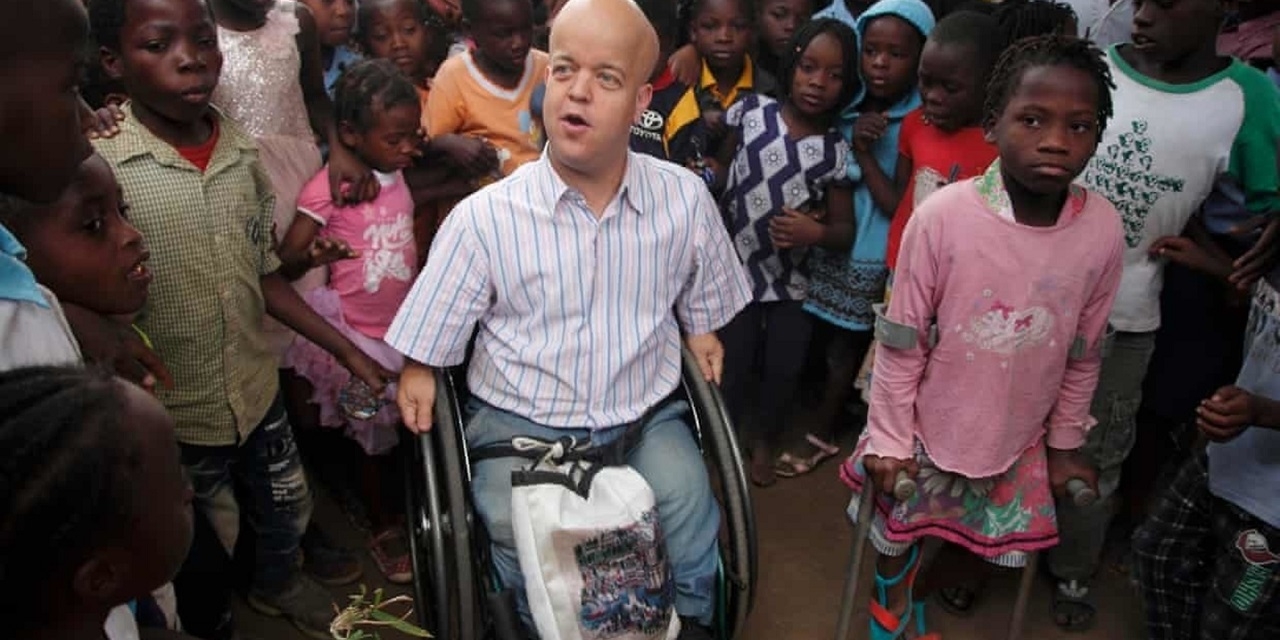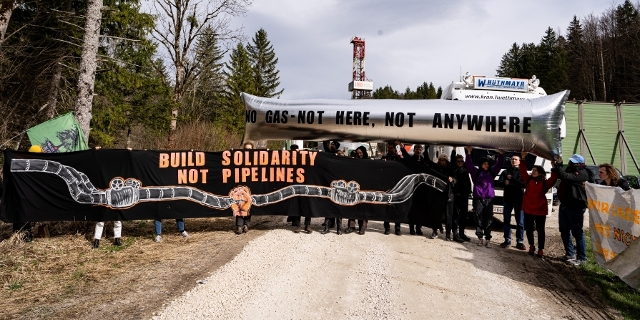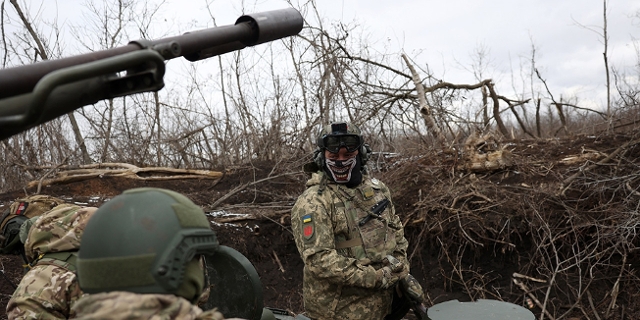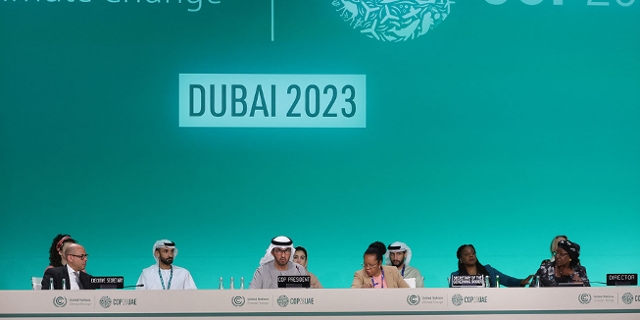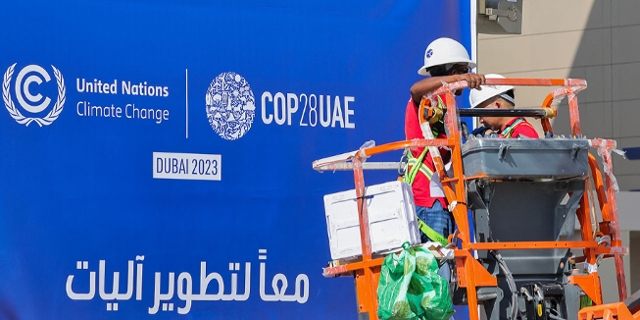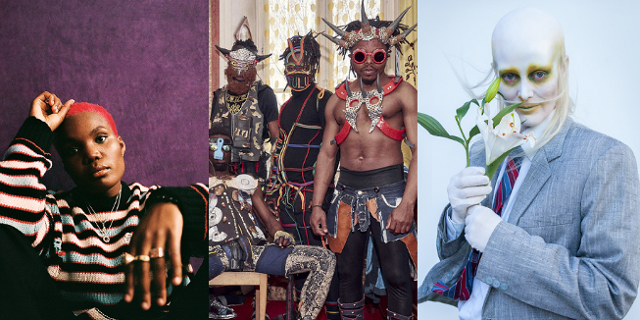Unleashing the Potential of Diversity in the developing world
Today, December 3rd, is the United Nations’ International Day of Persons With Disabilities. It is a day the United Nations invented back in the 1990s to focus minds on the need to integrate disabled people better into economic and social life. It is a day about opening more doors for more people.
Much remains to be done even here in a rich country like Austria. Even before the pandemic hit, only 56% of disabled people in Austria had a job or were in training.
But in the developing global south, the situation is much more dire, with around 80% of disabled people facing unemployment, stigma and a struggle to survive. Changing this is a big focus of the charity Light For The World.
Their new international chairman is the disabled-rights activist Tom Shakespeare. He has a disability himself; a condition called achondroplasia which has affected his growth. He also has a spine condition that means he uses a wheelchair. Despite these challenges, he graduated from Cambridge University and rose to the heights of academia.
Now, with Light For the World, he aims to help other disabled people reach their potential despite the widespread prejudice and physical barriers.
He told me about his encounters with determined young Africans and why self-belief, some kindness a little bit of money can go a long way.
CC: A lot of your work at Light For The World focuses on schools. How early do you have to reach children?
TS: Somewhere around 5% of children have disability. But one third of children that don’t go to school have a disability, so there’s much higher likelihood of not going to school at all.
In a low or middle income country that might be because parents don’t think it’s worth paying school fees, it might be because of the distance to travel to school, or it might be because the school is inaccessible or not welcoming to disabled children.
CC: So what can be done to change that awful statistic?
TS: Well, we can start with teachers. They are often a barrier. We can train teachers during teacher training so that they will be prepared to have disabled children in their classrooms. They need to be ready for this so that they’re able to accommodate them.
Providing materials which are accessible to blind and deaf people is very, very helpful to children. So is making sure that schools are accessible. That means making sure there are steps and ramps but also making sure there are toilets which people can use.
A lot of girls, a lot of disabled children have a hard time in school because the toilets are not accessible to them. So it’s everything really.
CC: Accessibility is about physical obstacles. But also, I guess, about mental and psychological obstacles. It’s about people being made to feel as if they don’t belong. What can you do, firstly, to make young people who are slightly different than their peers are able to believe in themselves? And, secondly, how do you make sure also their parents and the teachers believe in them?
TS: I think that we can put out role models. We can show that disability is no obstacle to people fulfilling themselves through education and through employment. When parents and teachers see that many, many disabled people are in jobs, are contributing to society, they’ll have higher aspirations for those children.
I also think that things like bullying in school affects children with disability. I know this because I’ve interviewed hundreds of people with disabilities in low and middle income countries. Children with crutches, for example, have the crutches taken away and are laughed at. People who are physically different are laughed at and so on.
I think schools need to be aware of this and they need to say: “No, we’re not going to tolerate this. We have a zero tolerance policy on bullying, whether it’s disabled children, girls or others.”
CC: You’ve travelled widely, you’ve been to Mozambique and you spoke to children there. What did you tell them?
TS: Light For The World works in Mozambique and I had the privilege of going to a school there and met a girl called Marta. And I remember her very distinctly. All she had was a mobility impairment. But quite honestly, she went faster on crutches than I would on a wheelchair. And she’d been out of school. She was found by Light For The World CBR (community based rehabilitation) workers and so she started at school.
But she was 11, so she was a lot taller than the six-year olds in the class that I visited. I talked to the class about disability and about how it’s no obstacle. I obviously gave my own experience as a professor; as a highly qualified disabled person.
Marta was very bright. She was very excited to be in school. And I think that her parents have been turned away. I think that they been told that she was not suitable for education. But she was intelligent and keen and there are many, many other children like her.
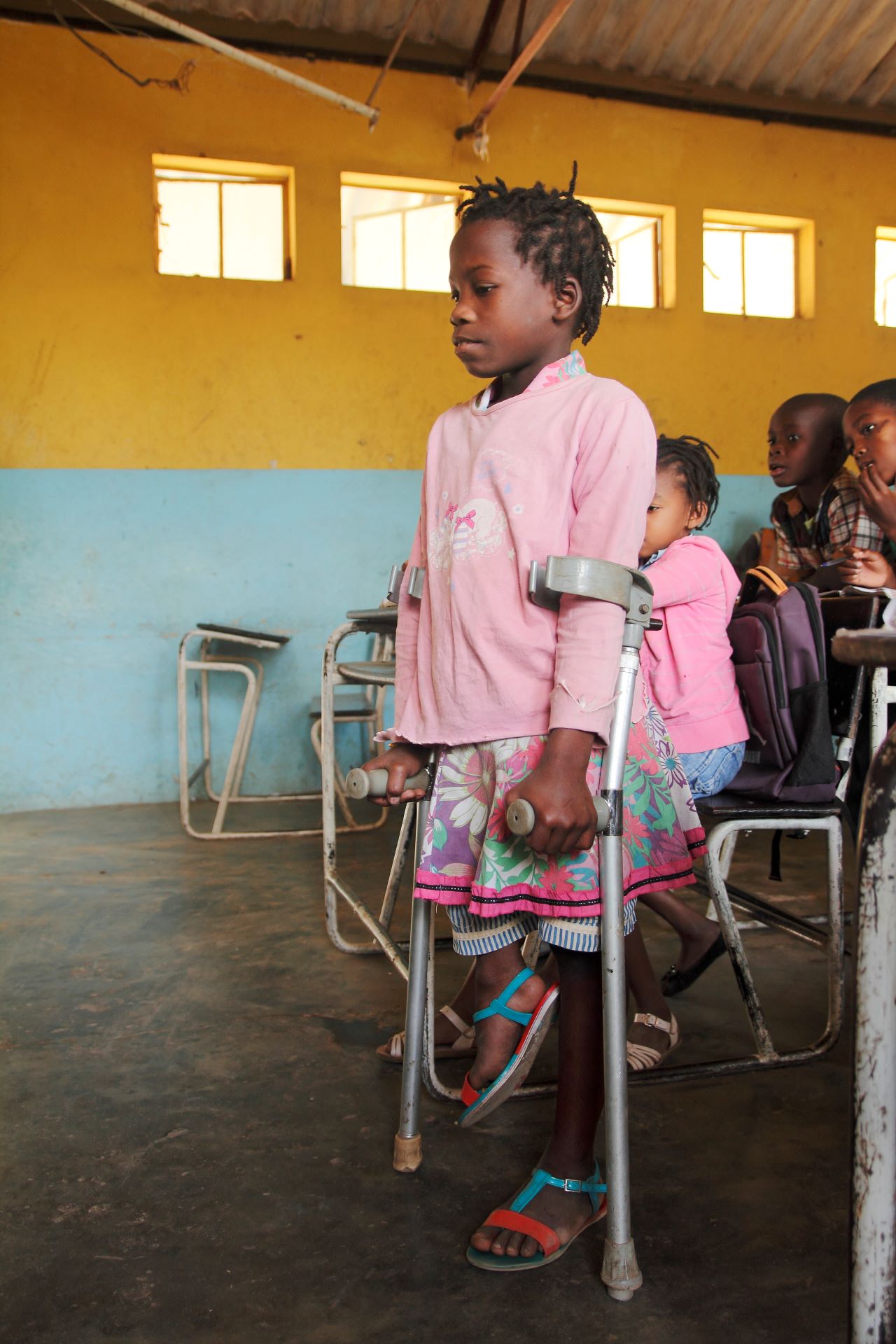
Light For The World
CC: And it’s interesting seeing it from the other way around. Of course, it’s a tragedy for Marta herself and people like her who have been shut out of education, but you’re describing a bright young girl who will become a bright young woman. That’s someone who could play a positive role in the development of her country. So, it must be in everyone’s interest to get as much potential developed as possible, I suppose?
TS: You’re absolutely right. I’ve been to Kenya, Zambia, Sierra Leone, Uganda and South Africa, to many, many South sub-Saharan African countries. And I interviewed senior civil servants in ministries. I interviewed professionals, lawyers and others and all of whom had been able to develop their potential. Now, unfortunately, they’re a minority. Most disabled children don’t get that chance. We need to make it possible for more disabled people to flourish. And, as you say, that would contribute to the economic progress of the country.
CC: We have heard some terrible stories from low-income countries of the stigma attached to being disabled being so strong that children and adults have been locked away in back rooms of houses. They have been hidden away from the world. Is the situation improving? Is the understanding of the needs and the abilities of disabled people improving?
TS: I think it is slowly. Improvements are faster in urban areas than rural areas. And we found a lot of people whose disabilities were blamed by their families on witchcraft or the “sins of the ancestors”. A lot of people were taken to traditional healers first and then only later to see the health care provider.
Obviously, if you’re in a rural area, it’s a long distance to get to a clinic. And if you have measles, mumps or one of these contagious diseases, you might be deaf or blind before you get there. Therefore it’s really important to communicate how important it is to get access to the proper treatment, and to communicate that it’s not a shame on your family if the child has disability.
What I found was so many children and adults were saying, I now support my parents, or I now support the education of other members of my family. They were very proud of their success, and their disability was no obstacle to their success.
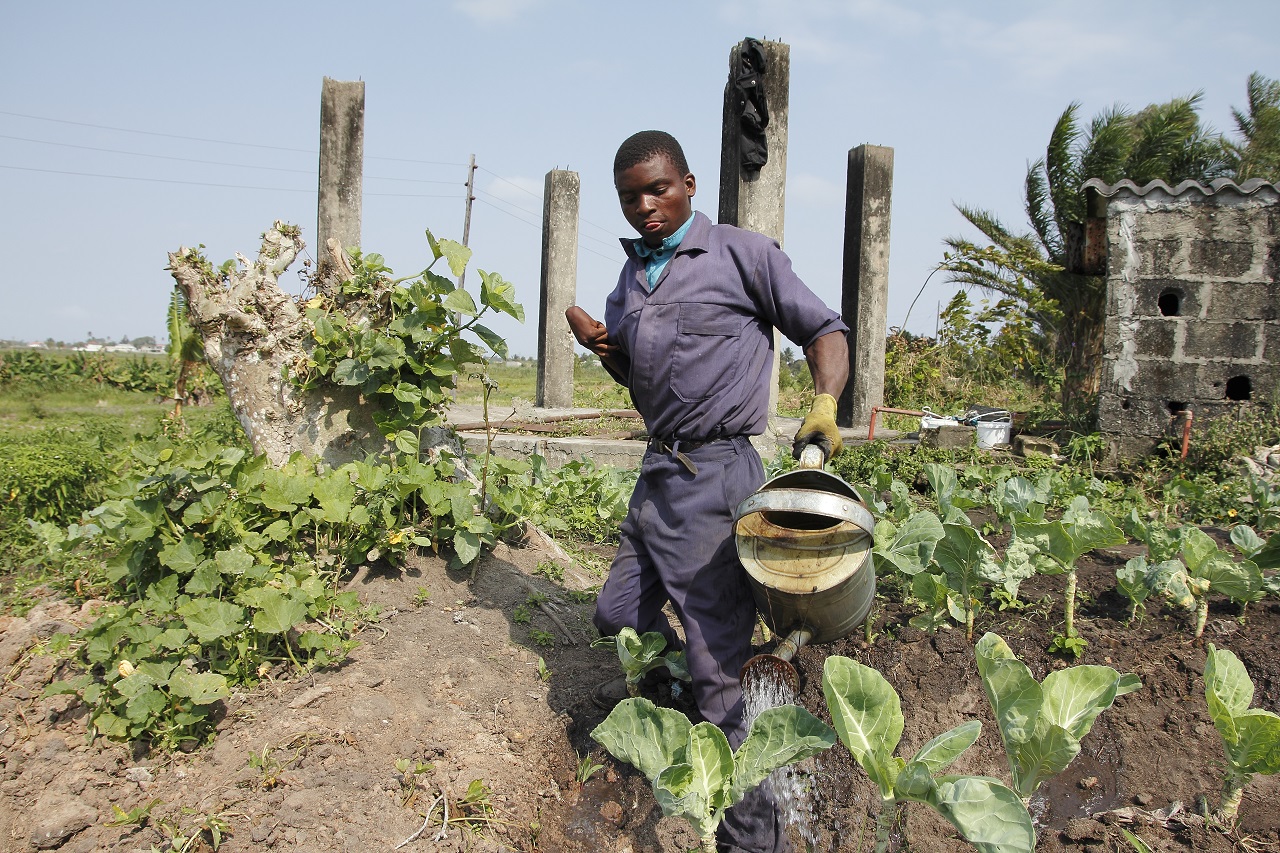
Light For The World
CC: So, the first thing to deal with is education, getting these young people educated and skilled. Then when they leave school, what sort of challenges are there moving from being a bright young person leaving school to someone who can be an active part of the economic and social life?
T.S. Well, many people are excluded from this sort of wage labour economy of formal economy. Sometimes they’re told, “Oh, look, go and work for an organisation of people with disabilities, that’s the place for you.” They really have to fight against prejudice and discrimination.
Disabled people are often put in the back office or the back room. They’re not usually front of house or dealing with the public. They’re not usually managing other non-disabled people.
Then there is the issue travel to work and in buses, or the matata minibuses, which most people use as public transport southern African countries. They are not accessible to wheelchair users, for example, or they might not stop for long enough for people with an mobility impairment to get on.
And some workplaces are really inaccessible, so we need more awareness of what people can contribute and more attention to what they can offer.
CC: What I’ve noticed in the developing world is the wonderful spirit of entrepreneurship. And of course, this can be helped by microcredit organisations who give people a helping hand in playing that valuable role in economic life by just giving them that first chance. But how hard is it for people with disabilities to get the microcredit organisations to believe in their dreams?
TS: It’s very hard and you’re absolutely right. Microcredit is very helpful. But if people say, “Look, you’re not going to pay back the loan, you’re a bad risk. We’re not going to take the risk with you.” And I promise you to disabled people have reported those reactions to me, then it’s really difficult.
I remember in Zambia meeting this guy, Donald, and he was a street tailor and he had a mobility impairment. The reason he had a sewing machine and the reason that he’d had sewing lessons to enable him to be economically independent was his sister. His sister had bought him a sewing machine. And his brother in law had paid for the lessons. And with that very small investment, he had become a contributor.
He was married, had three children. He was an “ordinary” member of society, and that’s all we want to achieve.
It just takes a small piece of equipment, maybe just a sewing machine or maybe a chicken hut so that the chickens can be secure at night, or maybe a hoe so that disabled people can hoe the ground. These can all make a big difference. So yes, we need to have access to sources of funding.
This has been a big focus for me: I argue that it’s all very well training people so they have all these skills, but it’s the small bits of money, a loan for example, which might make a big difference to their productivity.
CC: And I guess the hope is to get a positive snowball rolling so that when people see in their village or in their local community that a person they know who has a disability is achieving this or is managing to do this, then suddenly it just seems that the playing field has changed. Others might think I can do that or I can give that sort of person the job too?
TS: It’s a virtuous circle. You’re absolutely right. I think the pioneers and the stories and the publicity is really good. It’s about changing the level of aspiration.
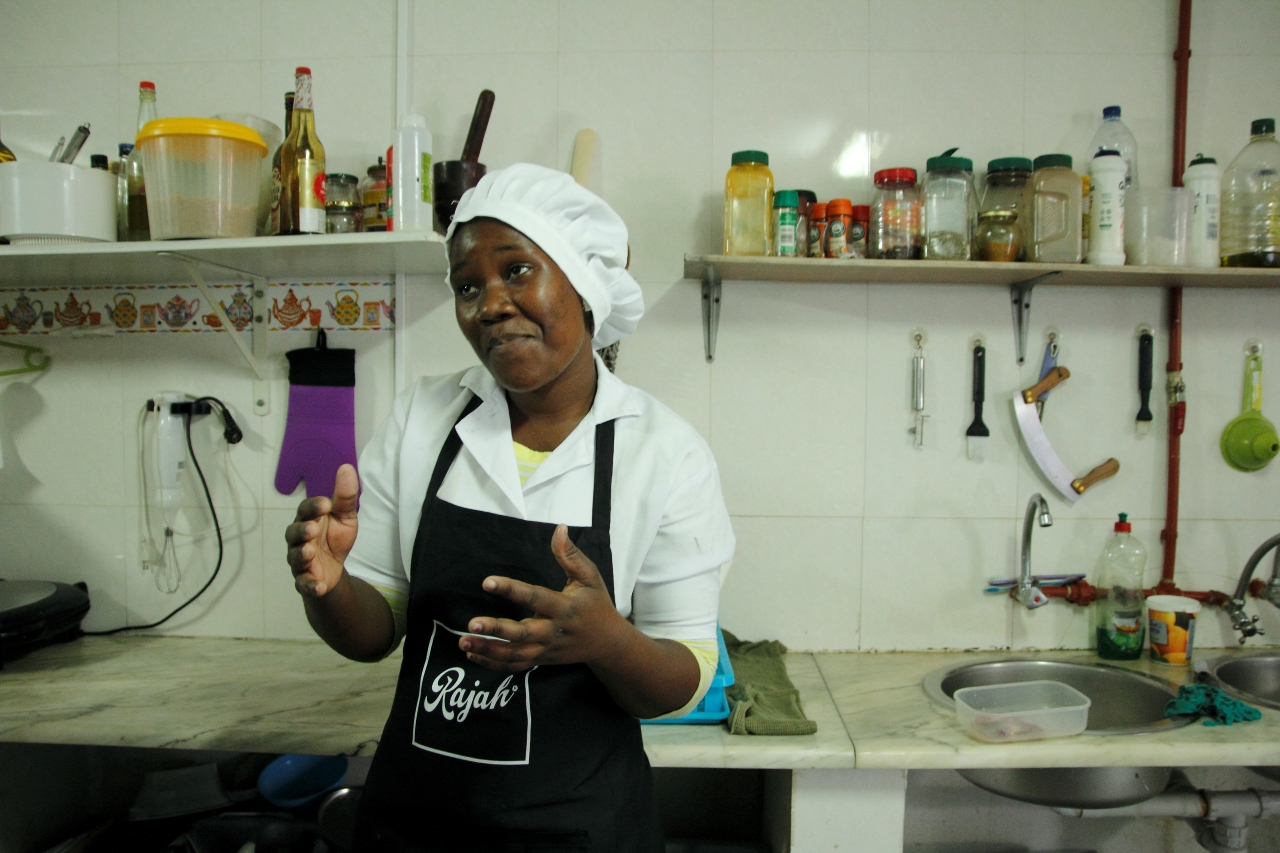
Light For The World
CC: We’re talking about young gifted people reaching their potential and there are so many about. But I was worried suddenly when we’re discussing this that we’re giving this impression that someone’s value as a human being is reliant on what they achieve in economic life. There will be, I imagine, people that you help out who are not necessarily at the top of the class in school or who really can’t do certain manual things. Yet they need to find a role for themselves and to feel valued in society as well. What would you do there?
TS: I think one thing is to train parents, because parents might think their child with cerebral palsy, for example, will never contribute anything and, terribly, sometimes should be left to die. I think we need understanding that actually everybody can do better and that a job isn’t everything.
There is a role they can play in the family, the household, or a village which may not be remunerated but can be of great value. It’s really, really important to change attitudes to disability amongst everybody from the village elders, to traditional healers to parents themselves is really important.
CC: Now, we’re talking a lot about the developing world because the situation is the most challenging there and because that’s the focus of Light For The World. But I guess there’s a leadership role in the West because we can’t pretend that the situation for disabled people is so brilliant in the West. I guess improving that would be the best way to show other countries: “Look, this how it is. How it can work”?
TS: Absolutely. And things like inclusive education, they’re not available to everybody in Britain, Austria, Germany, Switzerland or wherever else we were. And therefore, if we try to raise money and say, “Look, we want children to be inclusively educated” people might turn around and say, “Well, they aren’t inclusively educated in my neighbourhood so why should they be in Africa?” That gives us a difficult question to answer.
The answer for me is that we need to ensure that all children in school, all children are educated alongside their peers, their non-disabled peers, and that all young people have a possibility of a future.
And we know that, for example, in Europe, the unemployment rate of disabled people is twice that of non-disabled people. They do work but less. And we need to change that, that both because of their own self-esteem and achievement, but also because it’s just better for our economy. So we need to work on supported employment, on barrier removal, on perhaps the person, the athletes, the disability here as well as abroad.
Publiziert am 03.12.2021







